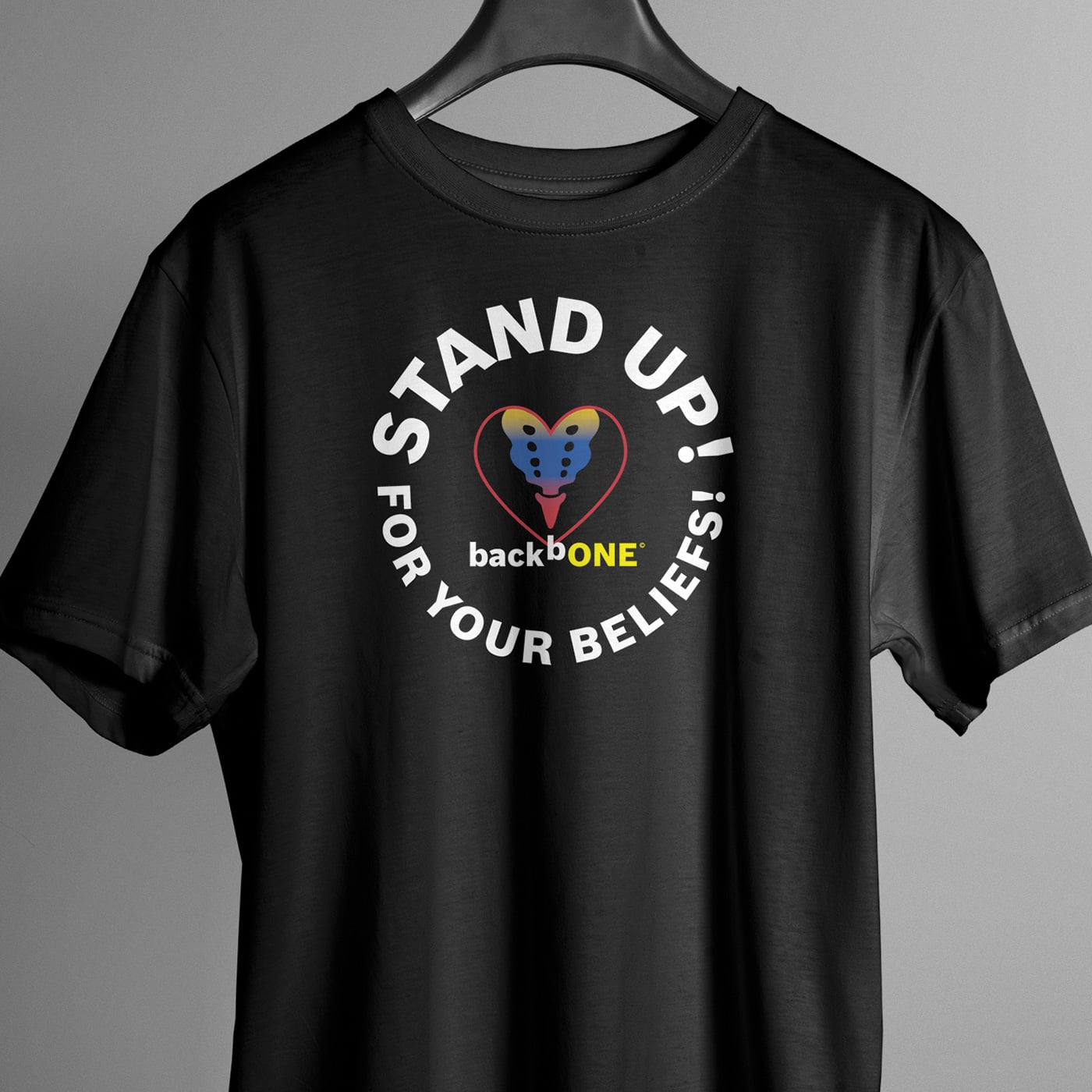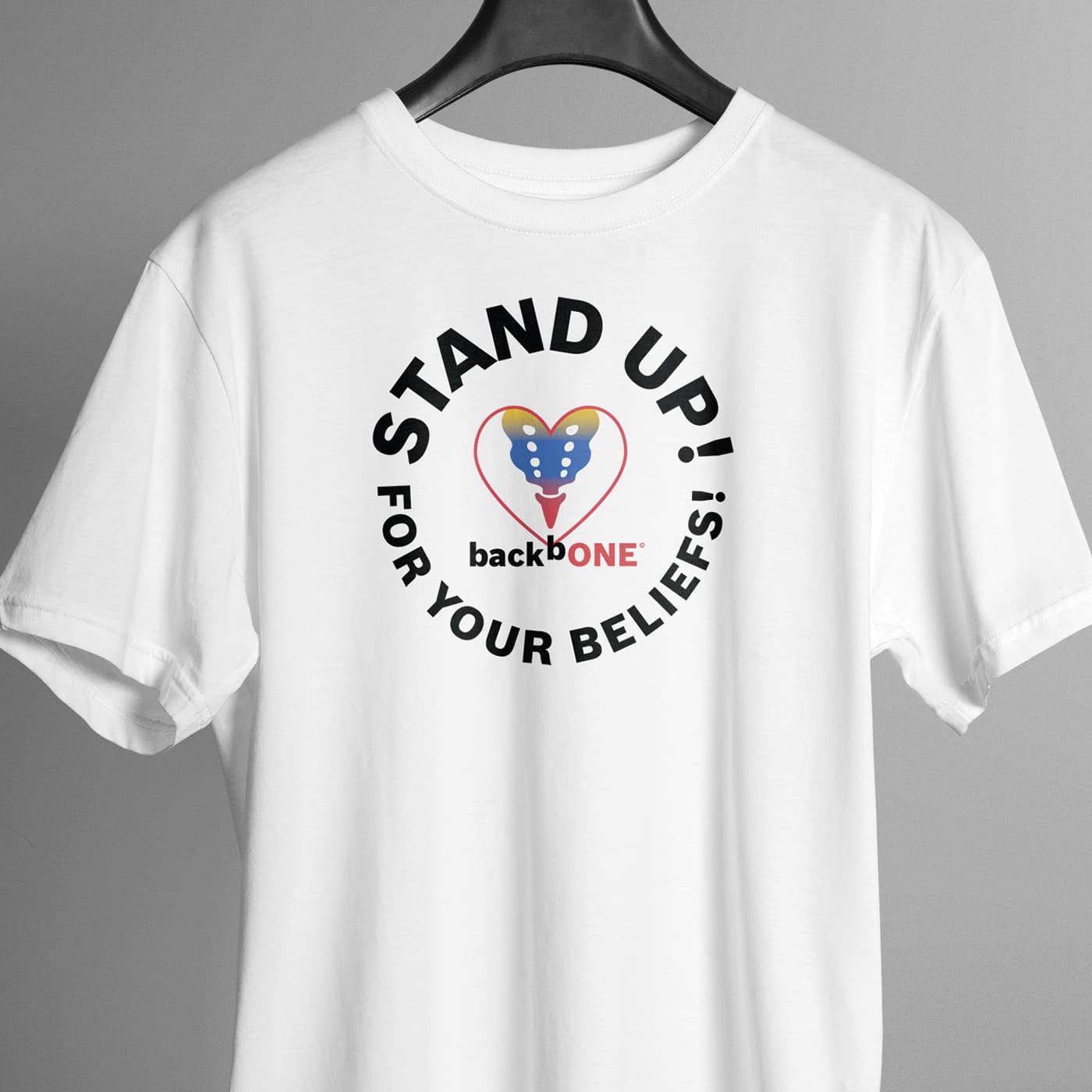Stand For Beliefs: A Comprehensive Guide To Embracing And Upholding Your Core Values
In a world full of distractions and competing ideologies, standing for beliefs has become more crucial than ever. It's the foundation of personal integrity and societal progress. When you stand for your beliefs, you not only define who you are but also influence those around you. This article will explore the importance of standing for your beliefs and provide actionable insights into how you can embrace and uphold them.
Beliefs shape our decisions, actions, and interactions with others. They guide us through life's complexities and help us navigate challenges. Whether it's standing up for justice, equality, or individual rights, having a strong sense of belief is essential for personal growth and societal impact.
This guide aims to provide you with a detailed understanding of why standing for beliefs matters, how to identify and articulate your values, and practical strategies to remain steadfast in the face of adversity. Let's dive in.
Read also:Kylie Jenner Siblings A Closer Look At The Kardashianjenner Clan
Table of Contents
- The Importance of Standing for Beliefs
- Identifying Your Core Beliefs
- Common Challenges in Upholding Beliefs
- Strategies to Stand Firm in Your Beliefs
- The Impact of Standing for Beliefs on Personal Growth
- How Standing for Beliefs Benefits Society
- Real-Life Examples of People Who Stood for Their Beliefs
- Tips for Communicating Your Beliefs Effectively
- Mental Strength and Resilience in Upholding Beliefs
- Conclusion: Take Action Today
The Importance of Standing for Beliefs
Standing for beliefs is not just about personal conviction; it's about contributing positively to the world. When you stand for something, you create a ripple effect that can inspire others to do the same. According to research by the American Psychological Association, individuals who align their actions with their beliefs experience greater life satisfaction and mental well-being.
Why Beliefs Matter
- Beliefs provide a sense of purpose and direction in life.
- They help you make decisions that align with your values.
- Standing for beliefs strengthens relationships and builds trust.
In a study published in the Journal of Personality and Social Psychology, researchers found that people who consistently stand for their beliefs are perceived as more authentic and trustworthy by their peers. This authenticity fosters deeper connections and influences positive change.
Identifying Your Core Beliefs
Before you can stand for your beliefs, you must first identify what they are. This process involves introspection and self-awareness. Core beliefs are the fundamental principles that guide your life and influence your behavior. They are shaped by your experiences, upbringing, and environment.
Steps to Discover Your Core Beliefs
- Reflect on past experiences where you felt strongly about something.
- Consider the values that resonate with you the most.
- Write down your thoughts and refine them over time.
For instance, if you believe in equality, you might find yourself advocating for social justice causes. Identifying these beliefs helps you live a more intentional and fulfilling life.
Common Challenges in Upholding Beliefs
Standing for beliefs is not without its challenges. In a world that often values conformity, staying true to your values can be difficult. External pressures, societal norms, and fear of judgment can make it tempting to compromise. However, understanding these challenges is the first step in overcoming them.
Overcoming Peer Pressure
Peer pressure is one of the most common obstacles people face when trying to uphold their beliefs. It's easy to succumb to the desire to fit in or avoid conflict. To combat this, focus on building a support system of like-minded individuals who share your values.
Read also:How To Understand Crown Family Traditions A Deep Dive Into The Monarchrsquos World
Research from Harvard University suggests that having a strong support network increases resilience and reduces the impact of negative external influences. Surround yourself with people who encourage you to stay true to yourself.
Strategies to Stand Firm in Your Beliefs
Once you've identified your core beliefs, it's time to develop strategies to uphold them. This involves both internal and external actions that reinforce your commitment to your values. Here are some practical tips:
Building Mental Resilience
- Practice mindfulness and meditation to strengthen mental clarity.
- Engage in activities that reinforce your beliefs, such as volunteering or activism.
- Set boundaries with people or situations that challenge your values.
According to the Mayo Clinic, mindfulness practices improve emotional regulation and enhance decision-making abilities. This, in turn, makes it easier to stand firm in your beliefs even when faced with adversity.
The Impact of Standing for Beliefs on Personal Growth
Standing for beliefs has a profound impact on personal growth. When you live in alignment with your values, you experience a sense of fulfillment and purpose. This alignment fosters self-confidence and empowers you to take on challenges with courage.
How Beliefs Drive Personal Development
Beliefs serve as a compass, guiding you toward your goals and aspirations. For example, if you believe in lifelong learning, you'll naturally seek out opportunities to expand your knowledge and skills. This growth mindset propels you forward and helps you achieve success in various areas of life.
A study by Stanford University found that individuals who prioritize personal values in their decision-making are more likely to achieve long-term success and happiness. This underscores the importance of aligning your actions with your beliefs.
How Standing for Beliefs Benefits Society
Standing for beliefs is not only beneficial for personal growth but also has a positive impact on society. When individuals stand up for what they believe in, they inspire others to do the same. This collective action leads to meaningful change and progress.
Social Change Through Beliefs
- Advocacy for human rights and equality.
- Environmental sustainability and conservation efforts.
- Community building and social justice initiatives.
Historical figures like Martin Luther King Jr. and Mahatma Gandhi demonstrated the power of standing for beliefs. Their unwavering commitment to justice and equality inspired global movements that continue to shape the world today.
Real-Life Examples of People Who Stood for Their Beliefs
Throughout history, there have been countless examples of individuals who stood for their beliefs, often in the face of significant opposition. These stories serve as inspiration and remind us of the power of conviction.
Malala Yousafzai: Advocating for Education
Malala Yousafzai is a prominent example of someone who stood for her beliefs despite immense challenges. As a young girl in Pakistan, she defied the Taliban's ban on girls' education and became an outspoken advocate for educational rights. Her courage and determination earned her the Nobel Peace Prize and inspired millions around the world.
Tips for Communicating Your Beliefs Effectively
Communicating your beliefs effectively is key to influencing others and creating change. It's important to convey your message in a way that resonates with your audience while remaining respectful and open-minded.
Best Practices for Communication
- Use clear and concise language to articulate your beliefs.
- Listen actively to others and engage in respectful dialogue.
- Provide evidence and examples to support your arguments.
Research from the University of California, Berkeley highlights the importance of empathy in communication. By understanding and acknowledging others' perspectives, you can foster meaningful conversations and build bridges.
Mental Strength and Resilience in Upholding Beliefs
Mental strength and resilience are essential qualities for standing firm in your beliefs. Life is full of uncertainties and challenges, and having the inner strength to persevere is crucial. Developing these qualities involves both mental and emotional practices.
Building Resilience
- Set realistic goals and celebrate small victories along the way.
- Focus on what you can control and let go of what you can't.
- Seek professional help if needed to manage stress and anxiety.
According to the American Psychological Association, resilience is a skill that can be developed through practice and experience. By nurturing your mental strength, you'll be better equipped to face challenges and remain steadfast in your beliefs.
Conclusion: Take Action Today
Standing for beliefs is a powerful way to shape your life and influence the world around you. By identifying your core values, developing strategies to uphold them, and building mental resilience, you can create a life that aligns with your deepest convictions.
We encourage you to take action today by reflecting on your beliefs and committing to live in alignment with them. Share this article with others and join the conversation. Together, we can inspire positive change and create a better future for all.
For more insights and resources on personal development and societal impact, explore our other articles and continue your journey toward a fulfilling and purpose-driven life.


